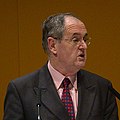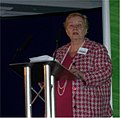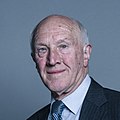| Winner | Loser |
|---|
| Michael Martin: 345 (71.1%) | | Sir Alan Haselhurst: 140 (28.9%) |
|---|
| Michael Martin: 409 (83.1%) | | Alan Beith: 83 (16.9%) |
|---|
| Michael Martin: 341 (66.7%) | | Gwyneth Dunwoody: 170 (33.3%) |
|---|
| Michael Martin: 317 (56.8%) | | Sir George Young: 241 (43.2%) |
|---|
| Michael Martin: 381 (79.5%) | | Menzies Campbell: 98 (20.5%) |
|---|
| Michael Martin: 257 (57.2%) | | David Clark: 192 (42.8%) |
|---|
| Michael Martin: 340 (74.6%) | | Nicholas Winterton: 116 (25.4%) |
|---|
| Michael Martin: 309 (91.2%) | | John McWilliam: 30 (8.8%) |
|---|
| Michael Martin: 290 (66.5%) | | Michael Lord: 146 (33.5%) |
|---|
| Michael Martin: 287 (68.8%) | | Sir Patrick Cormack: 130 (31.2%) |
|---|
| Michael Martin: 282 (67.5%) | | Richard Shepherd: 136 (32.5%) |
|---|
| Michael Martin: 370 (97.9%) | | Against: 8 (2.1%) |
|---|










